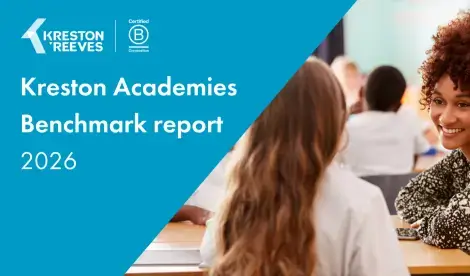Jennifer Williamson BSc (Hons) FCA
- Accounts, Tax and Outsourcing Partner
- +44 (0)330 124 1399
- Email Jennifer
Suggested:Result oneResult 2Result 3
Sorry, there are no results for this search.
Sorry, there are no results for this search.
View all peoplePublished by Jennifer Williamson on 25 November 2025
Share this article
Enhancing transparency in sustainability reporting and building trust through robust assurance are critical to driving meaningful change.
To achieve this on a mass scale, the introduction of clear, proportionate standards is essential. The UK Sustainability Reporting Standards (UK SRS) represent a major step toward embedding sustainability into corporate reporting and aligning businesses with the UK’s long-term climate and social goals.
We believe these standards can transform the way companies disclose sustainability-related financial information, if implemented thoughtfully. That’s why we’ve submitted a comprehensive response to the government’s consultation, which you can read in full here.
In this article, we share the key views that shaped our response and explain why we believe the UK SRS, combined with a strong assurance framework, can deliver the transparency, accountability, and trust that stakeholders demand.
We agree with the direction of travel and support the implementation of UK SRS. Aligning sustainability disclosures with financial reporting timelines will enhance usability and comparability for stakeholders. It is also clear that the UK is taking a pragmatic approach, giving businesses time to refine processes before tackling broader sustainability topics.
However, our support is not unconditional. There are areas where we believe the proposals fall short:
Adopting UK SRS will deliver tangible benefits:
Ultimately, UK SRS adoption is not just a regulatory obligation, it’s a strategic advantage. Standardised reporting enhances competitiveness in supply chains and prepares businesses for future global requirements.
Introducing UK SRS is a positive step, but it won’t be easy for every business. Many organisations, especially SMEs, will find it challenging to collect accurate data, particularly for Scope 3 emissions. These requirements can feel complex and time-consuming without the right tools and guidance.
Cost is another big concern. Businesses will need to invest in new systems, staff training, and assurance services. For smaller companies, these costs could be significant. There’s also a risk of duplication if existing frameworks like SECR and TCFD are not streamlined alongside UK SRS.
To make this transition manageable, we recommend:
Without this support, reporting could become a tick-box exercise rather than a meaningful step toward sustainability ambitions.
High-quality assurance is critical to the credibility of sustainability reporting. We support the creation of a UK registration regime for sustainability assurance providers, aligned with ISSA 5000 standards. However, we strongly oppose a profession-agnostic approach that allows unregulated providers to operate without the ethical, technical and quality safeguards applied to statutory auditors. Assurance demands more than subject-matter expertise. It requires professional scepticism, independence, and robust quality management.
In the long term, we advocate for mandatory assurance of UK SRS disclosures, starting with public interest entities and large private companies, and moving toward reasonable assurance as the market matures. This will protect against greenwashing and ensure stakeholders can rely on sustainability information with the same confidence as financial statements.
The UK SRS represents a significant opportunity to lead on sustainability reporting. By balancing ambition with proportionality, and by supporting businesses through clear guidance and phased implementation, these standards can drive meaningful change across the economy.
You can find out more about the technical elements of the legislation in our article here.
If you want to understand how you as an SME can prepare, then you can find out more here.
Share this article
This site is protected by reCAPTCHA and the Google Privacy Policy and Terms of Service apply.
Related people
This site is protected by reCAPTCHA and the Google Privacy Policy and Terms of Service apply.
This site is protected by reCAPTCHA and the Google Privacy Policy and Terms of Service apply.
This site is protected by reCAPTCHA and the Google Privacy Policy and Terms of Service apply.
Our complimentary newsletters and event invitations are designed to provide you with regular updates, insight and guidance.
You can unsubscribe from our email communications at any time by emailing [email protected] or by clicking the 'unsubscribe' link found on all our email newsletters and event invitations.
This site is protected by reCAPTCHA and the Google Privacy Policy and Terms of Service apply.







